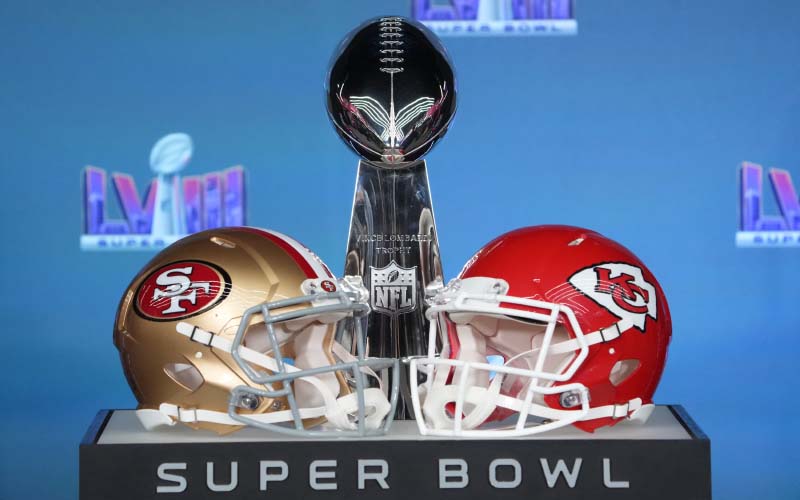The Super Bowl is more than just a championship football game; it has evolved into one of America’s most iconic and celebrated annual events. Each year, millions of viewers tune in not only for the thrilling athletic competition but also for the spectacular halftime shows, memorable commercials, and the cultural significance that surrounds it. From its humble beginnings to its current status as a cultural phenomenon, the Super Bowl offers a unique blend of sports, entertainment, and social commentary. In this comprehensive guide, we will delve into the rich history of the Super Bowl, explore its impact on culture and economics, and uncover the various traditions and rituals that have become synonymous with game day.
Understanding the Super Bowl Experience
The Super B offers an unparalleled experience that transcends 33WIN.SHOPPING sports. It captures the imagination of fans across the globe, drawing them into a whirlwind of excitement, anticipation, and celebration. With so much at stake, including bragging rights, sponsorship deals, and even personal legacies, understanding the intricacies of the Super Bowl involves exploring its history, key players, and significant cultural impacts.
History of the Super Bowl
The narrative of the Super Bowl began in 1966 when the National Football League (NFL) and the American Football League (AFL) agreed to a merger that would ultimately lead to the creation of the game we know today. The first Super Bowl, played in January 1967, pitted the Green Bay Packers against the Kansas City Chiefs. Initially dubbed the AFL-NFL World Championship Game, it was rebranded as the Super Bowl for its second edition, and the name stuck.
The significance of the Super B grew rapidly, with each passing year introducing new trends and milestones. For instance, the game was initially broadcast on low-viewership television networks, but by the time the 1980s rolled around, it became a prime-time spectacle watched by millions.
As the years went by, the Super Bowl transformed from a sporting event into a media powerhouse. By the late 20th century, Super Bowl Sunday had become a national holiday of sorts, with parties held across the country—from intimate gatherings to massive public viewings. This evolution was marked by technological advancements in broadcasting, enabling fans to experience the game like never before.
Key Players and Teams
Every Super B is defined not only by the final score but also by the players who take the field. These athletes become larger-than-life figures, often embodying the hopes and dreams of their respective cities. From legendary quarterbacks like Joe Montana and Tom Brady to fierce defensive players like Lawrence Taylor and Ray Lewis, the Super Bowl has showcased some of the greatest talents in American football history.
Each team that reaches the Super B carries its own story—an amalgamation of hard work, strategy, and sometimes, sheer luck. Rivalries are born in these monumental games, captivating audiences and adding layers to the matchup. The narratives surrounding the teams often draw in casual viewers, turning them into emotional stakeholders in the outcome of the game.
Moreover, the rise of fantasy football has added another layer to the Super Bowl experience. Fans no longer just support their favorite teams; they now cheer for individual players to perform well, regardless of their team affiliations. This shift has given birth to a new kind of fandom, where the Super Bowl becomes a culmination of personal investment in the sport.
The Cultural Impact of the Super Bowl
The Super B is a microcosm of American society, reflecting broader cultural trends while simultaneously influencing them. Its reach extends beyond the realm of sports, impacting music, fashion, and even political discourse. The halftime show, for instance, has become a platform for artists to showcase their talents and make bold statements.
Over the years, famous performers such as Michael Jackson, Beyoncé, and Prince have graced the stage, using their performance to comment on social issues or to express solidarity with movements. These moments resonate with audiences far beyond the confines of sports, prompting discussions on race, gender, and identity.
Even the commercials that air during the Super Bowl have become cultural phenomena in their own right. Brands invest millions into creating memorable advertisements, often unveiling their most creative ideas during the big game. This tradition has turned the Super Bowl into a showcase of marketing genius, with consumers eagerly anticipating the commercials as much as the game itself.
The Super Bowl is a multi-faceted event that encompasses far more than just a football game. From its historical roots to its present-day cultural significance, the Super Bowl represents a convergence of sports, entertainment, and societal values. It captivates audiences, sparks conversations, and drives economic growth, making it a vital part of American culture.
